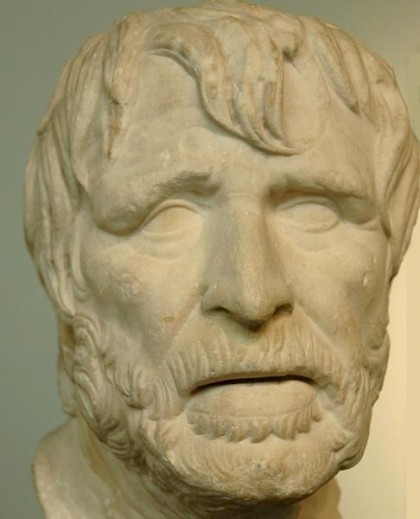Hesiod
Hesiod: legendary Greek poet, author of the Theogony and Works and Days.

In the mid-eighth century, a sailor settled at Ascra in Boeotia, where his son started to write a poem on farming, Works and days. The poet is usually called Hesiod, after another Boeotian poet, who had composed a primitive but systematic account of the history of the gods, full of dark forces, deities, and violence. This Theogony had been modelled on Near Eastern myths about the rise and fall of the dynasties of gods.
The ancients believed that both poems were written by the same man, but modern classicists agree that the author of the Works and days was influenced by Homer, whereas the author of the Theogony, Hesiod, seems to have been Homer's contemporary.
Both works are fascinating: the younger because of the Works and days is superior in style, the elder because the Theogony offers an important introduction to Greek mythology.
Several other texts were later attributed to Hesiod, like the Catalogue of Women and Precepts of Chiron.